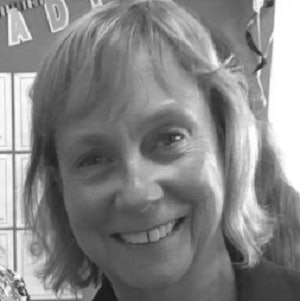Deborah Meehan, director of the University of Maine at Augusta Rockland Center, recalls watching a “brilliant” student graduate from her prison education program present on his work. “Everyone in the room was in tears,” she said. He went on to work as a teaching assistant for a college course for incarcerated students on individual character and moral development in prison.
 Deborah Meehan
Deborah MeehanHe’s serving a life sentence. And “his sentence isn’t going to change,” Meehan said. But his environment “will forever be changed” because of him.
Her student is one of many. There are more people sentenced to prison for life than the entire prison population in the early 1970s, according to a 2018 report by the Sentencing Project. That’s one in seven prisoners, over 206,000 people, including life sentences without the possibility of parole, life sentences with the possibility of parole and “virtual” life sentences of at least 50 years.
And yet this sprawling population is often left out of conversations about prison education – and sometimes barred from programs themselves – because of an emphasis on preparing students for release and employment.
“That’s where all the data is,” said Meehan. “That’s where all the dialogue is. We collectively as a society, we’re still responsible for the incarcerated populations we’ve put behind bars. So, how can we make that an experience for them that still has potential and human dignity? I know some may see it as a wasted investment. I don’t believe in that at all.”
As colleges and universities prepare to create and expand prison education programs, in response to the restoration of the Pell Grant for incarcerated students, she wants lifers to be included in the federal funding, unlike the Second Chance Pell program, a pilot program started under President Barack Obama, where students had to be eligible for release.
Part of the issue is prison education policy discussions also heavily revolve around recidivism, which is 48% less likely for people involved in prison college programs, according to a 2016 Vera Institute of Justice report. While that’s important – and an easy figure to cite when calling for resources – it can also leave lifers out of the picture when measuring a program’s value, said Jessica Jensen, director of statewide educational initiatives at John Jay College of Criminal Justice’s Institute for Justice and Opportunity.
 Jule Hall
Jule HallEducation is “wonderful in its own right,” she said. “Why would college for incarcerated people be about recidivism? College in the community isn’t about recidivism. That’s not how college is built, so why would we have a different standard to measure our successes by?”
Advocates, like Jule Hall, argue that educating students with life sentences doesn’t just benefit them but their entire prison populations because lifers serve as a unique support system for other students. Hall was sentenced to life in prison and served 22 years before his parole and release in 2015. Now he’s a program officer of post-secondary education in prison at Ascendium Education Group.
In general, “lifers are the most influential population in any prison,” he said. “Because they’ve been there the longest, they know the officers. People who have these long sentences actually build healthy relationships with the corrections officers inside the facility because they have the understanding that they both have to be there and have to work together to make the day go as smoothly as possible.”
Hall graduated with a bachelor’s degree in German studies from the Bard Prison Initiative. He finds it motivates newcomers when they see lifers “deeply engaged” in education.
“I know, for me, the people who had the longest time in the facility had the impact on me,” he said.
Jensen has also seen that mentorship dynamic play out. Her program focuses on applicants that have the possibility of paroling within the next five years, though they do have students with life sentences. She described one student, recently released, who was with the program so long that they ran out of courses for him. He attended orientations, offering to answer questions and tutor new peers. By the time he left, he came to serve almost an “administrator” role.
Students like him “maintain culture over time and history and can be a source of support” for their classmates, she said.
She also sees education as a potential “bridge” between lifers and their communities outside the prison. For example, last year, an applicant asked her to print and send five copies of his acceptance letter to members of his family. It can be “proof” of effort and growth when they want to strengthen damaged relationships.
Plus, instructors find students with life sentences to be highly motivated to learn.
“We still underestimate the intellectual interests of people who are incarcerated and what they want to engage in,” Hall said. “My experience engaging people who knew they would not be ever released, they understood to enrich my life while I’m here, I would love to engage Plato, I would love to read Alice Walker, I would love to attend classes and have that intellectual discourse with people. Because it makes a person feel whole.”
Dr. Cynthia Wang, an assistant professor of communication studies at California State University, Los Angeles, finds her incarcerated students do the reading for her classes “really closely,” sometimes more closely than she does. She teaches at California State Prison in Lancaster.
For her, education is about “self-actualization,” and that’s true for all of her students.
Too often, people ask instructors in prisons, “well, what is the point if they’re going to be in prison for the rest of their lives?” Wang said. “And I say that the very fact that that question is being asked is exactly the point. Everyone deserves access to education and that’s what we provide.”
Sara Weissman can be reached at [email protected].
Editor’s Note: Jule Hall works for Ascendium Education Group, not Ascendium Education Solutions as the article originally stated.















